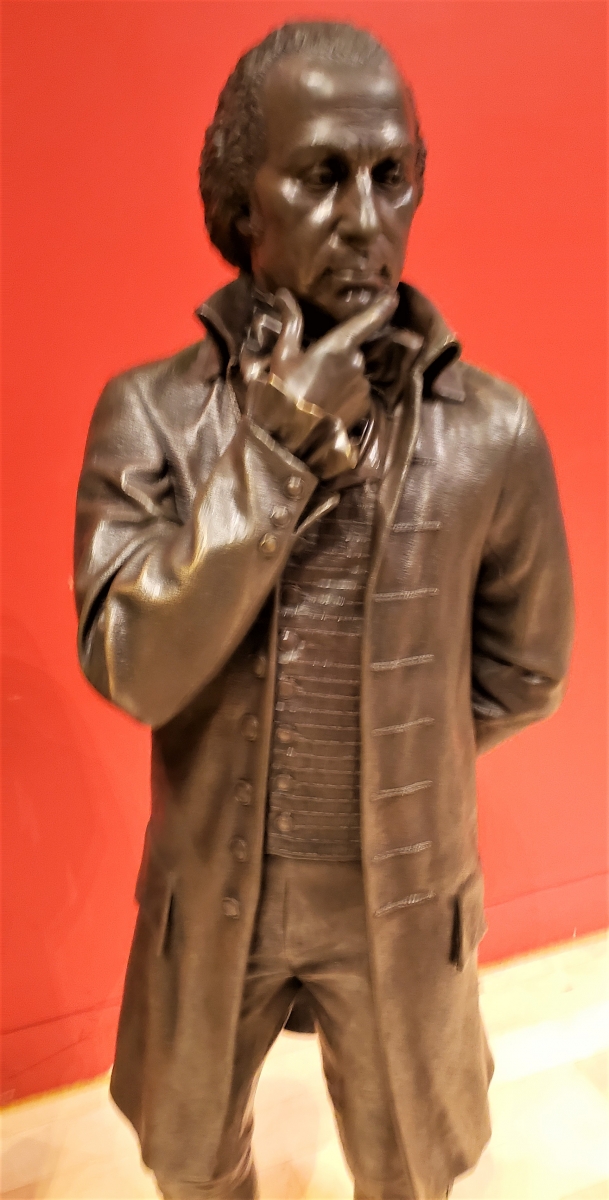Related Posts
- Buy Tickets for The Constitutional Walking Tour of Philadelphia – See 20+ Sites on a Primary Overview of Independence Park, including the Liberty Bell and Independence Hall
- Constitutional Convention
- Independence Hall
- Signers' Garden
- National Constitution Center
- New Hall Military Museum
Birth: November 16, 1753
Death: May 3, 1816 (age 62)
Colony: Maryland
Occupation: Physician, Politician
Significance: Signed the United States Constitution (at the age of 33); and served as the United States Secretary of War (1796-1800)

James McHenry was one of seven immigrants (who were not born in the American Colonies) to sign the United States Constitution. McHenry was born in Ballymena, Ireland, and he lived there until 1771 when McHenry immigrated to Philadelphia. In Philadelphia, McHenry finished his schooling and then apprenticed under Benjamin Rush (who signed The Declaration of Independence), and McHenry later became a physician.
In 1776, he was appointed to serve as a surgeon for the Continental Army and was taken as a prisoner of war by the British during his service. After McHenry was released in 1778, he continued to work in the Continental Army until 1781 when he retired from the army and moved to Maryland. Recognized for his service during the Revolutionary War, McHenry was elected to the Maryland Senate not long after he exited the army in 1781.
In 1787, McHenry was named a member of the Constitutional Convention which met in Philadelphia. At the Constitutional Convention, McHenry represented Maryland and helped to debate, draft and sign the United States Constitution.
In 1796, President George Washington named McHenry the third Secretary of War in United States history. McHenry left the position in 1800 as the Federal Capital was set to leave Philadelphia and relocate to Washington, D.C. After 1800, McHenry largely retired from public life, passing away in 1816 at the age of 62.
Fort McHenry
The history of Fort McHenry dates back to 1776 when the citizens of Baltimore feared an attack by British ships. However, both the fort and Baltimore were never attacked during the Revolutionary War. In 1793, France declared war on England, and this war came to be called the Napoleonic Wars. In 1794, the U.S. Congress authorized the construction of a series of coastal forts to protect America's maritime frontier. Construction began on Fort McHenry in 1798 and, by 1803, the masonry walls were completed. The fort was named for James McHenry, America's third Secretary of War.
James McHenry in Philadelphia
McHenry first arrived in Philadelphia as an 18 year old who had just immigrated to the American Colonies from Ireland. McHenry spent his first years in America within the City of Philadelphia as he trained to be a physician. McHenry returned to Philadelphia when helped to write the United States Constitution as a member of the Constitutional Convention in 1787, which met at Independence Hall. McHenry also worked in Philadelphia when he was Secretary of War in the late 1790s while Philadelphia was the Capital city of the United States. One of the places that the Department War was located in the 1790s is New Hall Military Museum, which is today a museum dedicated to early American military history. You can also see a statue commemorating McHenry for his role in the creation of the United States Constitution in the Signers' Hall exhibit of the National Constitution Center. Signers' Garden pays tribute to the Founding Fathers, including those such as McHenry, who signed the Constitution of the United States. The National Constitution Center, New Hall Military Museum, Signers' Garden, and Independence Hall are all visited on The Constitutional Walking Tour!



